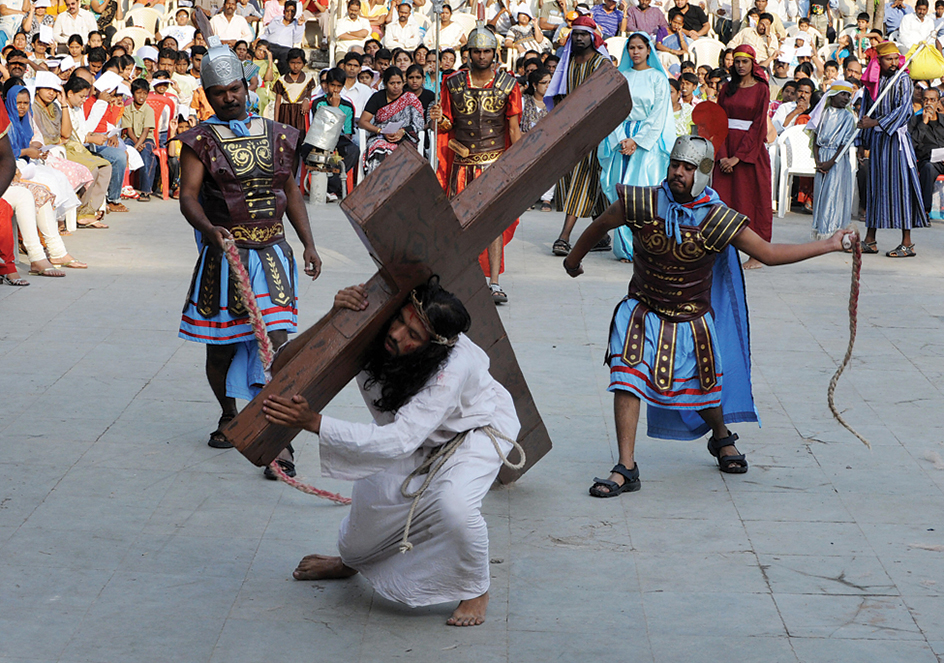Passion play is a dramatic performance that presents the death and resurrection of a god. The ancient Egyptians performed passion plays devoted to the god Osiris. The ancient Greeks presented similar plays dedicated to the god Dionysus. But the term Passion Play most often refers to plays that depict the suffering, Crucifixion, and Resurrection of Jesus Christ.

European townspeople and villagers of the late Middle Ages often staged Passion Plays. The plays enabled them to participate personally in the drama of Jesus’s last days on earth.
Several towns in southern Germany, western Austria, and Switzerland continue the Passion Play tradition today. The most famous European Passion Play is presented by the town of Oberammergau in southern Germany. This play was first performed in 1634. The Thirty Years’ War (1618-1648) and a plague had caused suffering for the population, and the local people vowed to perform the play regularly if God would spare them from being wiped out. The Oberammergau Passion Play normally is performed every 10 years. It lasts about 5 hours and includes thousands of performers and other participants. In the United States, Passion Plays are performed annually in several cities.
